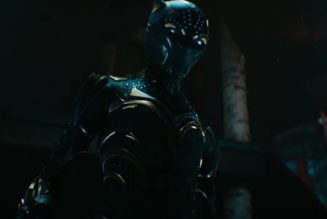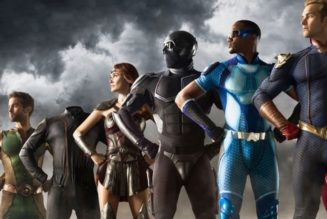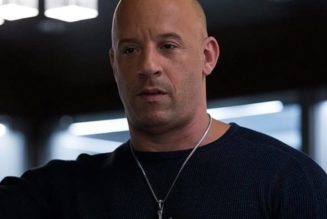
★★★★
Among the best films are those viewers can watch with the sound off and still skillfully follow the emotional throughline of the narrative. In his feature screenwriting debut, Justin Kuritzkes takes full advantage of silent communication to achieve precisely that. With excellent direction by Luca Guadagnino (Bones and All), Challengers stands out as a very worthy sports and passion drama, albeit with a few missteps along the way.
Challengers features Zendaya as former tennis player Tashi, who coaches her husband Art (Mike Faist) as he seeks a Career Grand Slam despite suffering a string of losses while recovering from injury. To boost his confidence, Tashi enters Art as a wild card in a smaller Challenger tournament, where he’s pitted against former best friend and romantic rival Patrick (Josh O’Connor), a fallen pro who has to use one-night stands to get around his inability to afford a hotel room. Throughout the course of the match, the film jumps back to numerous points in time that explain the trio’s tragic falling out.
Despite Zendaya’s commanding presence throughout the run time, it’s the brotherly chemistry between Faist and O’Connor that truly cements the emotional core of the threesome’s love triangle. This becomes most evident during an early story told upon their first meeting with Tashi, wherein they narrate a time as children when Patrick taught Art how to pleasure himself. It’s a rather bizarre story, only made believable by the ease with which the two actors share the screen together. When they meet later as rivals, the unspoken tensions are palpable, yet the sense of childhood friendship between them is still blatant.
Guadagnino seems quite aware of the talent available to him, as the film frequently allows silence to tell the story prior to delivering exposition. Art and Tashi hardly speak to one another for the first several minutes of the film, yet their personal and professional dissatisfaction is readily apparent nearly every time they make eye contact. A similar scene plays out when Tashi and Patrick later run into each other at a hotel bar, whereupon the viewer immediately gets the sense that most of the resentment between them is harbored by Tashi rather than Patrick.
The film also quite brilliantly uses tennis itself to explore these relationships. Each player has their own clear style, yet their styles visibly change to reflect their emotions. For instance, Tashi relies largely on footwork to control the court, using quick foot movements not unlike those seen in a boxing ring. After a fight with Patrick, her footwork begins to falter, which plays a vital role in how the match concludes
For all of its successes, Challengers does not lack at least a few rather unfortunate directing choices. As tends to be the case with sports films, product placement is largely unavoidable. Yet when the camera lingers a long time on the Adidas logo before cutting to Patrick, who always directs the logo on his Coca-Cola bottle squarely at the camera no matter what angle he’s being shot from, suspension of disbelief evaporates just a tiny bit.
Challengers also sometimes loses momentum as a result of its overly repetitive electronic score by Oscar-winning composers Trent Reznor and Atticus Ross. It’s hard to focus on beautiful shots of littered and wind-swept streets or sweat-covered rivals when the same melody appears to play on loop. During the film’s overreliance on fast-paced POV shots near the final match’s climax, the result becomes nearly dizzying.
These minor complaints, however, do little to subtract from the film’s undeniable emotional heart and general technical excellence. They amount to miniscule defects in an otherwise flawlessly executed movie that even the least of tennis fans will find thrilling up to the very final (and extremely rewarding) payoff.









